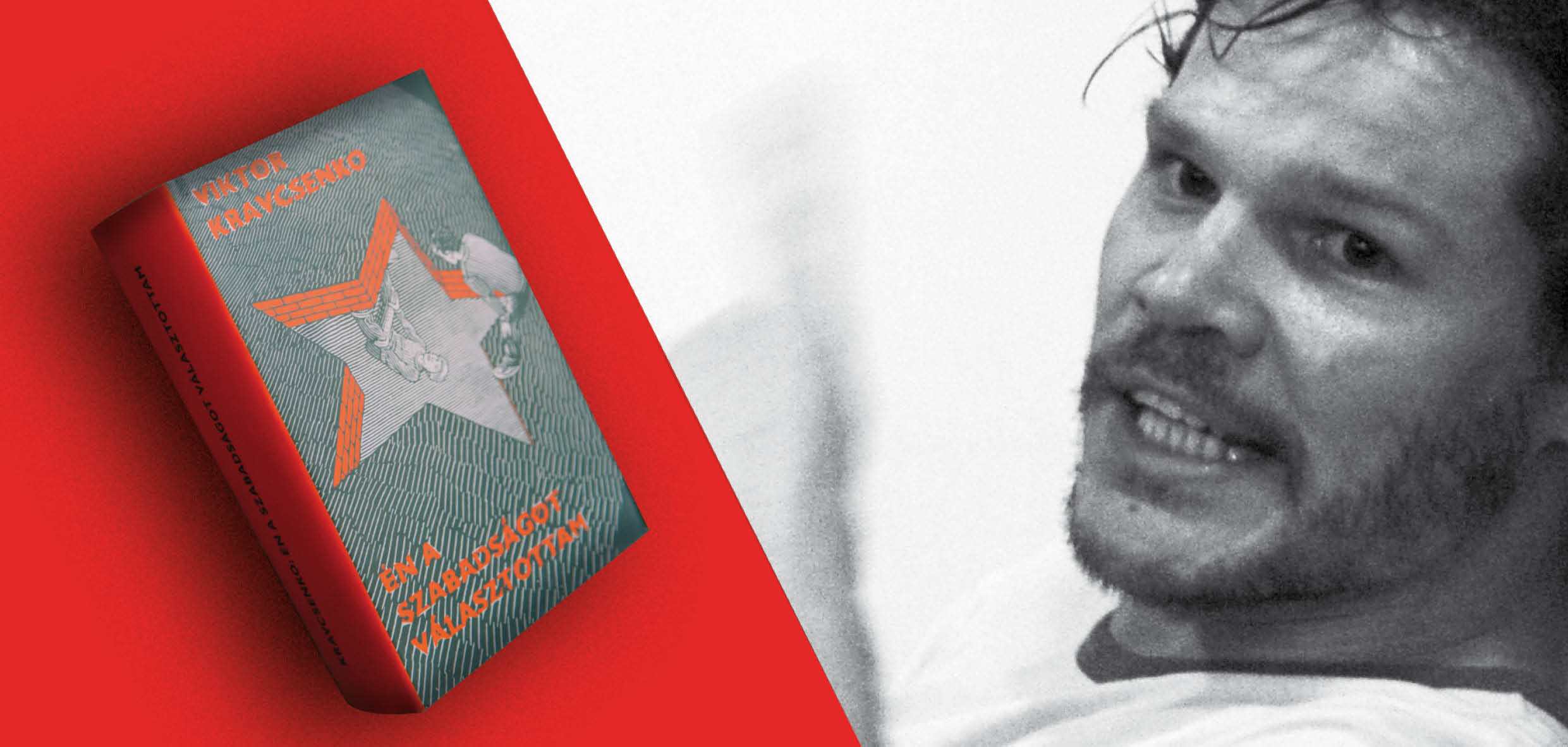I Chose Freedom - one-person manifesto by Zoltán Balázs
A few years ago the ’Kravchenko Case’ got into the focus of intellectual debates again in several areas of the world. The topic got into the focus of attention following the the publication of John Fleming’s bestseller of ideologic history, The Anti-Communist Manifestos: Four Books That Shaped the Cold War in 2009 and when in 2008 a Polish publisher – for the first time among the ex-communist states – released Kravtchenko’s autobiography, which is like an indictment, thus triggering considerable debates in the media. Hungary has been avoided by these debates – and the book has also avoided Hungary. What makes it so conroversial today is its absence: forgetting about the case, denying it, rejecting its importance all show that we have not really understood the issues of post-World War II era and what it meant for us and this is what was so directly discussed in the 1946 writing and then shown by the life and fate of the author and book with their tragic twists in a clear and painfully straightforward way.

The message of the theatrical adaptation of Kravchenko’s I Chose Freedom is now much different from what it was at the beginning of the Cold War and it is about much more than the political-ideological choice between systems. The Kravtchenko issue is about life: how can you create and recreate the ’memory of personal freedom’, the cultural experience that has to do with the ability and responsibility to make personal decisions and choose our own lives under conditions when a totalitarian system considers it just an unnecessary bad thing that must be eliminated.
It is not by mistake that Victor Kravchenko’s I Chose Freedom, a 1946 world bestseller and Arthur Koestler’s 1941 novel, Darkness at Noon: these writings were the first to try to make the world realize the real nature of the Soviet system. What is more, Kravchenko was the first – much before Solzhenitsyn’s Gulag – to report about life of Soviet labour camps and the brutality of the system of totalitarian terror. What is important today is not only or not necessarily the historical information – political and ideological history it contains.
Maladype Theatre received the exclusive rights of Viktor Kravchenko’s book I Chose Freedom for Hungary and published it for the 22nd International Book Festival Budapest. Translated by Péter Konok and cover design by István Orosz, the book introduced to the public at the Írók Boltja (the Writers' Bookshop) on November 6.
Kravchenko’s indictment against Stalin will be performed as a one-person manifesto by Zoltán Balázs on November 14.
In connection with the performance, an encompassing theater-in-education program series titled `Kravchenko Case` is launched, with the inclusion of experts and consultants: Judit Bíró sociologist, head of the Minority Studies Department at Eötvös Loránd University Faculty of Social Sciences; Zsuzsanna Gyimesi, research area: Russia, administrator expert at Center of Russian Studies, Eötvös Loránd University, Faculty of Humanities; Zoltán Borbély, attorney at law, former spokesperson for the Office of the Prosecutor General; György Csepeli, sociologist, social psychologist, President of the Hungarian Sociological Association; Péter Konok, historian, translator of the publication; Attila Pók, historian, appointed director of the Institute of History at the Research Centre for the Humanities, Hungarian Academy of Sciences; Zoltán Sz. Bíró, historian, research fellow at the Institute of History at the Research Centre for the Humanities, Hungarian Academy of Sciences.
Translation: Péter Konok
Performance: Zoltán Balázs
Literary adviser: Zoltán Balázs
Production manager: Katalin Balázs
Opening night: 14 november 2015, Maladype Base
Copyright@ 1946, by Victor Kravchenko
Renewal copyright owned by Andrew Kravchenko. All rights reserved.
No part of this book may be reproduced in any form without the permission of Andrew Kravchenko.
